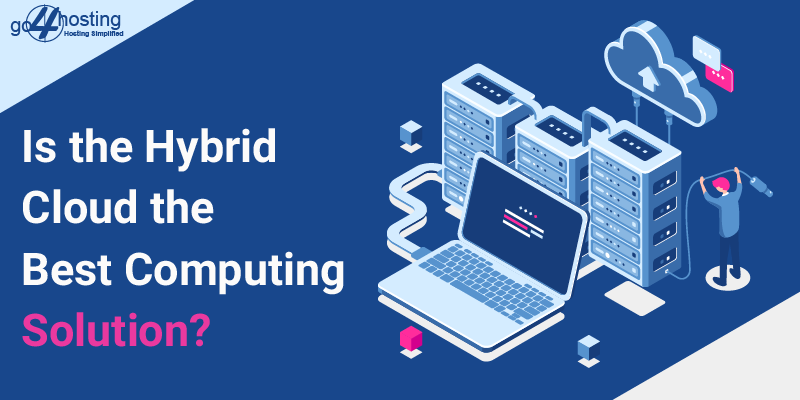Is the Hybrid Cloud the Best Computing Solution?

Hybrid clouds are truly finding many takers. But are they the best solutions? Well, in order to understand the same, it is important to have a fair understanding of what hybrid cloud computing actually is. Simply put, they are a judicious mix of private and public cloud.
When we are referring to cloud computing in general, we mean public clouds. These are plans where companies who own servers, sell divided spaces at cheaper rates than actual individual servers. While this may seem like cost effective for most companies, it could well cause several concerns including availability, accessibility and most importantly, security.
Private servers are the most secure solutions for storing data. Companies can set up a cloud of their own and use it for computing and other processes. These clouds are meant to work as public clouds but exclusively for the company in question. This gives more space, unique availability and excellent accessibility for the company in question.
And then there is Hybrid cloud hosting which is a complete intelligent mix of public and private cloud interfaces. Here, public clouds are used for tasks that are not so sensitive while private clouds are used for those that are vital. It is more like a middle path and apparently more suitable for companies who are just making the cloud computing plunge.
The Many Advantages of the Hybrid Cloud
- Provides for Excellent Scalability: Hybrid clouds are created in such a manner so that they can provide almost instant scalability. Within a hybrid network, several processes work together to achieve a harmonious functioning with different types of clouds. It becomes an ideal platform for loading heavy projects which may not otherwise have been possible. When the company engages a hybrid climate, the cost of spending on additional hardware support is saved. Therefore, although the upfront cost may seem more when compared to a public cloud environment, it is during these times that the actual cost benefits are realized.
- Provides Global Reach: For companies that rely on a hybrid cloud computing system, global reach is never a problem. The cloud computing can be operated and accessed from all across the world. This provides universal access to the business. There are no boundaries on the basis of geographic limitations. Also, this wide reach provides endless connectivity. Outages are few and far between.
- It’s fairly reasonable: While performing cost calculations, it is important to set the parameters right. For instance, if we end up comparing the plan with a shared hosting system, the costs will seem fairly high. However, the advantages provided by the Hybrid cloud hosting plan should always be kept in mind while performing cost assessments. Companies can find it especially difficult to invest in managed hosting. These hybrid hosting plans provides advances solutions at highly cost effective rates instead. It proves to be cheaper since companies do not need to shift plans or spend on additional hardware for catering to their enhanced needs and requirements.
What about Security?
The fear of insecurity always looms large when it comes to cloud computing. Once a cloud is launched on the internet, it remains exposed for access and even for vandalizing. In fact, it because of security concerns that many companies refrain from hitting the cloud. However, experts opine that storing data on the cloud is almost as safe as storing it in private servers.
Companies dealing with sensitive information however needs to careful. It may be prudent to store the most sensitive information on local servers. Cloud storage can be used for bulk storage of information and not so important data. Heavy processing should be left to the cloud since loading private servers with too much data overload can be harmful and may compromise basic functions of the server infrastructure. Seeking private server support for processing huge chunks of data can also mean compromised performances and increased costs.
An intelligent mix of both is required therefore.
In Conclusion
When it comes to security, there are indeed some niggling concerns associated with cloud hosting since it is a domain that resides in a common location. However, it is surely emerging as a highly favourable concept and futuristic too. The hybrid infrastructure offers the best of both worlds, private and public. The cloud infrastructure is indeed a huge boon to the computing world.
The secret of success lies in three important attributes:
- Keeping the expectations in track when it comes to assessing the hybrid hosting plan.
- Knowing how to manage and operate the plan to the best of its ability
- Selecting a trustworthy computing solution provider for ensuring the best results from your chosen plan.
Although there are some concerns, hybrid hosting seems like a good idea for companies that are keen on seeking an advanced data computing system. The prices are competitive too.





